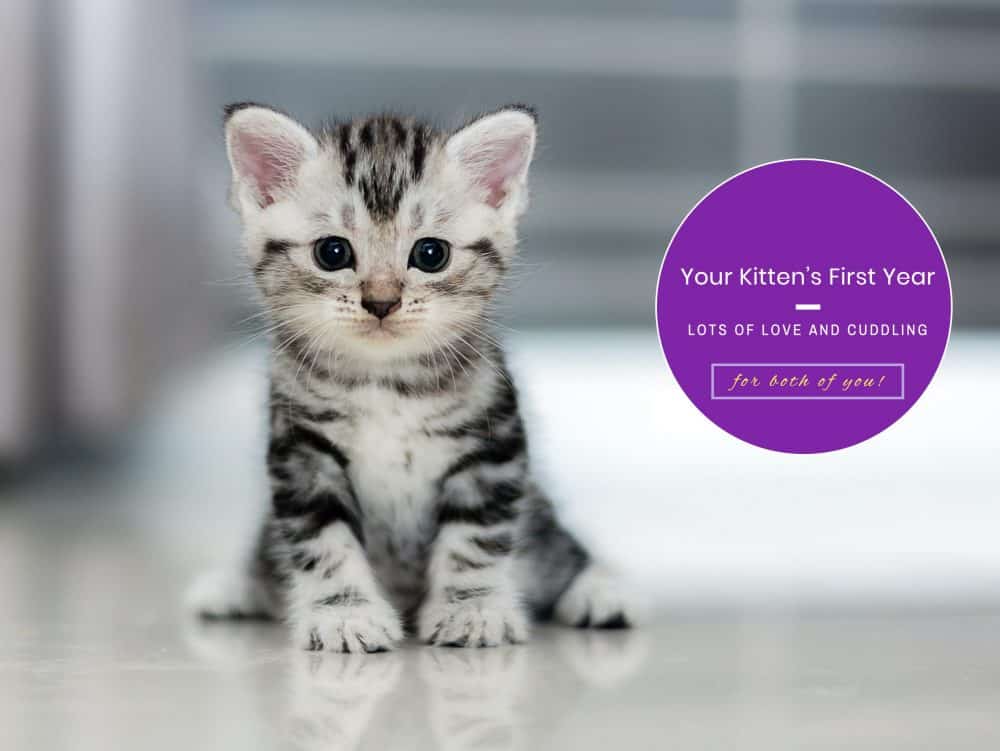Congratulations on your new feline family member!
You’re in for a treat as your kitten grows from a tiny fur ball to an independent and utterly delightful cat. In their first year, your cuddly kitten will give you tons of joy and love. While your veterinarian will help you learn the specific needs of your furry friend, most kittens follow common life stages. Learn about what you will experience during your kitten’s first year.
Birth to 7 weeks:
Kittens should stay with their mothers and littermates until at least six weeks old, preferably eight, to help with learning and social skills. While touch and taste are present at birth, at around two weeks old eyes open, and at around 5 weeks baby teeth break out and they develop their hearing and sense of smell.
Nearly fully weaned and beginning to form alliances with littermates, your kitten’s eyes will now settle into their permanent color.
Development – They begin to stand, walk, and run as well as develop adult sleeping patterns and social interactions – they’re learning their world!
7 weeks to 3 months:
At about eight weeks old you can take your new family member home with you! You’ll notice social play (hugging and licking), object play (scooping and pawing), and social and object play (tail-chasing and leaping).
While your kitten will become more and more skilled, adventurous, and independent, they will also be cuddly and affectionate.
It is time for their exam and vaccine series. At their exam, your veterinarian can give you litter box training and feeding tips. Now is also a great time to enroll them with a pet insurance company. Hopefully they stay out of trouble but medical insurance may come in handy as your kitten grows.
3 to 6 months:
Once they start losing their baby teeth, at three or four months old, they will chew a lot more as their adult teeth come in. They might not eat much, or as quickly, because food can irritate their gums. This is normal and will pass once they’ve stopped teething.
Your kitten will start to see you and companions of other species as part as their ‘litter’ and will be influenced by their behavior.
Socialize – As they keep growing, your kitten will test their physical limits more and more. They will also test social relationships, including other cats, animals, and you, by playing more roughly with toys, your fingers, hands, toes, feet and anything else that moves.
6 to 12 months:
Both male and female kittens can become sexually active now or earlier. If they are not spayed or neutered they will begin to display sexual behavior, like spraying to mark territory, yowling to attract a mate and fighting with other cats.
Your kitten will begin to observe more and respond less, and they may start acting ‘macho’ and be a little less affectionate. Don’t worry, its temporary as they continue to grow their independence!
Grow – As they finish maturing over the next year or so, your furry friend will continue to play, purr contentedly and bond with you.
